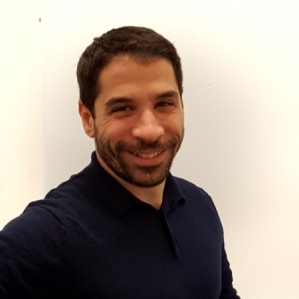 We caught up with our Alumni, Nikos Aspiotis, who graduated from the MA: Digital Technologies, Communication and Education in 2009.
We caught up with our Alumni, Nikos Aspiotis, who graduated from the MA: Digital Technologies, Communication and Education in 2009.
1. What you are doing (and how DTCE (past) has fed into that)?
I work as a Programme Development Technologist for the Global MBA blended learning programme at the University of Manchester, Alliance Manchester Business School. The Global MBA is the biggest blended learning programme of the University with 2.500 students located worldwide.
My role has elements of what we can call traditional learning technologist’s work (training staff on new technologies, advise on course design, researching new tools and instructional design (ID) methods) but involves project managing the integration of new technologies or ID frameworks into the delivery of the programme.
The MA DTCE provided me with the necessary skill set for an eLearning role. Apart from the excellent teaching and curriculum of the programme, I appreciated the flexibility of it as it can cater to needs of different professions. You can be a teacher, an eLearning entrepreneur, a Learning tech, an Instructional Designer and still the programme will support your individual academic needs.
2. How your work is currently changing according to new technological innovations and/or shifting uses of technology
Changes in HE take time and as such adaptation of new learning technology in HE is slow. HE institutions are big and complex organisations where integration of technological innovations has a disruptive effect and affects all aspects of activity from teaching and learning to research and administration. Specifically with eLearning, I would dispute that we are witnessing any major technological shifting or introduction of
new tools but rather I would suggest that established tools (VLEs, assessment software, etc) are becoming more reliable, functional and cross-platform compatible. This evolvement is going hand in hand with the provision of better student record systems, library resources and research systems which are all integrated under an umbrella management system (look at UoMs “My Manchester” platform). This affects the support
and training requirements for students and staff.
Another significant change if we look at the Learning technologist’s role compare to 5 years ago, is that there is an increase in training requirements in pedagogy for teaching staff. Now, the use of technology is expected as a standard but teaching staff additionally need pedagogical support to counteract the disruptive effect of the integration said technology. eLearning training takes a back seat where as pedagogy becomes more prominent.
3. What you think the future will hold in the next 10 years (and perhaps what DTCE might need to focus on).
What affects the teaching and learning (T&L) process in HE, is student demands of flexibility, ease of access to resources and value for money from their degrees which is an outcome of the changing nature of the university “product”. This is an effect not only of socio-cultural changes (technologically adept generation,
use of technology in the civic life, etc ) but is also influenced by political decisions (HE funding, TEF framework, etc). The product of the university is changing and as such the tools that support T&L activity are adapting to this change. A significant change is also arising from the ability to use and analyse big data. Universities are starting to exploit the amount of data they hold on students to provide a personalised
product (e.g. adaptive learning systems and changes to curriculum) based on the analysis of data stored on eLearning systems. All big players in the VLE market are constantly improving their collection and data analysis and reporting tools to keep up with the trend. For example, the disruptive effect of MOOCs comes from the data they hold on users and the marketing opportunities this holds for their potential customers
which are universities willing to access this potential student base.
Connect with Niko on Linkedin.